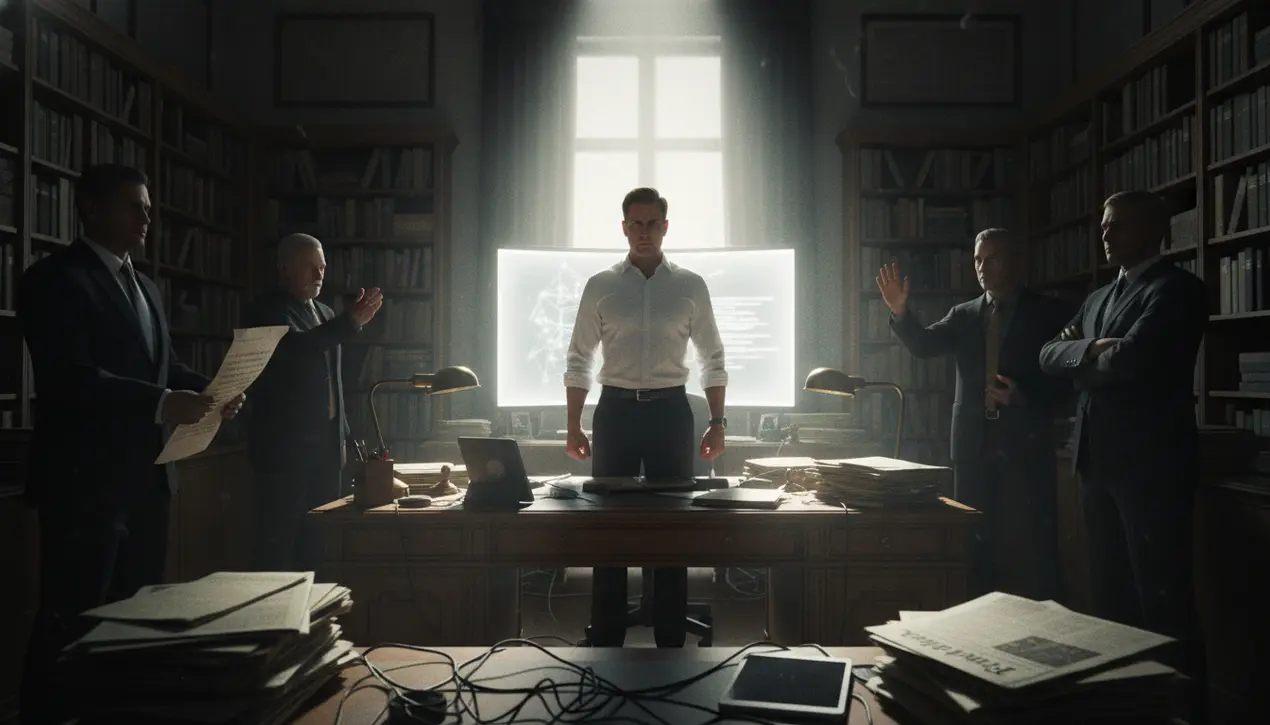
Politicscorruption & scandals
FCC's Carr rejects criticism, won't end news probes.
RO
Robert Hayes
4 hours ago7 min read4 comments
In a move that underscores the deepening ideological schisms within regulatory bodies, FCC Commissioner Brendan Carr has resolutely dismissed a formidable wave of criticism from four of his predecessors, a cohort that notably includes three former Republican chairs. This is not merely a bureaucratic squabble; it is a profound clash over the very soul of regulatory authority and the First Amendment's application in the digital age.The former chairs, wielding the considerable weight of their combined experience, had issued a stark warning, arguing that the Commission's ongoing probes into newsroom editorial practices represent a dangerous overreach, a chilling step toward government interference in the free press that echoes the most contentious battles over the Fairness Doctrine. Yet Carr, standing his ground with the conviction of a man defending a strategic redoubt, has framed the opposition not as a defense of liberty, but as a capitulation to partisan pressures and a fundamental misreading of the FCC's modern mandate.He posits that in an era dominated by sprawling tech platforms and algorithmic curation, the traditional boundaries of 'news' have been irrevocably blurred, necessitating a fresh examination of how content is shaped, promoted, and potentially biased. This is not the FCC of the 1970s, he might argue, invoking the ghost of regulatory frameworks past, but an agency grappling with a media ecosystem where a handful of Silicon Valley titans hold more sway over public discourse than any network news division ever did.The consequences of this standoff are monumental, stretching far beyond the marbled halls of Washington. A decision to press ahead with these investigations could set a precedent for how Western democracies approach platform governance and content moderation, potentially placing the U.S. on a trajectory observed in the European Union with its Digital Services Act, yet raising alarm bells for free speech absolutists.Conversely, capitulating to the former chairs would be seen as a victory for a hands-off approach, potentially leaving the field open for unaccountable power to shape narratives without scrutiny. The political calculus is equally complex, with Carr's stance creating strange bedfellows and fracturing traditional partisan alliances, a dynamic reminiscent of historical realignments on issues of state power and corporate influence. As this high-stakes drama unfolds, it serves as a critical test case for the limits of regulatory power in the 21st century, a battle where the principles of a free press are being re-litigated on a digital battlefield no founding father could have possibly envisioned.
#FCC
#Brendan Carr
#news distortion probe
#regulation
#media
#featured
Stay Informed. Act Smarter.
Get weekly highlights, major headlines, and expert insights — then put your knowledge to work in our live prediction markets.
Comments
Loading comments...
© 2025 Outpoll Service LTD. All rights reserved.